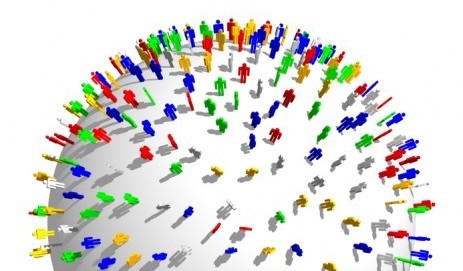This post was co-authored by Dr. Rahul Rajkumar, a physician at Brigham and Women’s Hospital in Boston.
As oil and gas continue to spew out of a broken pipe at the BP spill site in the Gulf of Mexico, those of us who rode on the health care reform bandwagon have to wonder if we should have tackled energy and climate change first. Lack of access to health care is a moral imperative – but inadequate health care is responsible for only a small fraction of the unnecessary loss of life that occurs every year in this country. If the goal is to make Americans live longer, healthier lives while reducing the burden out-of-control health care costs impose on families tight budgets, we need to realize that Mother Nature may be the best doctor of all.
In some ways, the real health bill now working its way through Congress is the energy and climate bill. It could bring cleaner air and water – and reduce our reliance on oil and other fossil fuels.
That’s critical if we’re going to deliver a healthy America. It’s easy to see the health impacts when oil and water mix: sickened workers (not to mention wildlife killed by the spill). But on a daily basis, across our country, oil has at least as damaging health impacts when it’s burned in cars and trucks and sends pollution into the air. It’s one of the major reasons why so many cities still have such poor air quality – causing millions of asthma attacks and thousands of preventable deaths every year. This type of pollution is not as visible as the oil spill, but it’s still a killer.
The energy and climate bill could help address this health threat that rides around with us in our engines and coming out of smokestacks both by capping pollution, and by making it easier for Americans to buy vehicles powered entirely or partly by electricity. It also will ensure that diesel vehicle quickly transition to natural gas and other cleaner fuels.
Cleaning up cars, trucks, and buses is great – but it isn’t enough. We’ve also got to stop driving so much altogether. In addition to the pollution, an automobile-centered sedentary lifestyle imposes additional costs on our health: more obesity, diabetes and heart disease, and of course far greater risk of traffic accidents (still the leading causes of death for young Americans). Step one towards getting people out of their cars is designing liveable, walkable communities.
Just enabling people to walk half an hour more a day can pay big dividends: by reorienting their towns for pedestrians with simple steps like hiking trails and bike paths, cities like Newark, Delaware and Somerville, Massachusetts are starting to see significant fitness gains. When you have to walk to work or walk to the store (preferably at a brisk pace), your neighborhood becomes a built-in gym.
Of course, oil isn’t the only dangerous fossil fuel. Pollution from coal-fired power plants causes asthma, lung cancer, heart disease, and respiratory ailments, requiring hospital visits. Every year, that adds up to 24,000 lives lost and $167 billion (pdf) in additional health care costs from toxic pollution, according to the Clean Air Task Force.
Boosting energy efficiency and switching to pollution-free clean energy sources like solar, wind, and geothermal power could wipe away this enormous health care tax. So could protecting and restoring forests: trees can rapidly absorb pollution, reducing cancerous smog and other pollutants.
And though we tend to think of climate change as a global problem, it’s already causing a lot of major local health impacts. It’s increasing heatwaves around the world, increasing the incidence of death. Hurricanes have gotten more intense – and are probably getting more frequent too.
Tropical diseases like dengue fever and malarxia could become significant problems. Even that most local of pollutants – smog – is worsened by global warming: hotter temperatures mean more smog (which is why summer days tend to be the most polluted). Unless we transition to clean energy, expect Red Alert air pollution days in September, October, or even later.
Giving everyone in America health care was a worthy public policy goal if there ever was one and we’re glad that its done. But to save lives, we have to think more broadly. Clean energy and climate action may be just what the doctor ordered!


